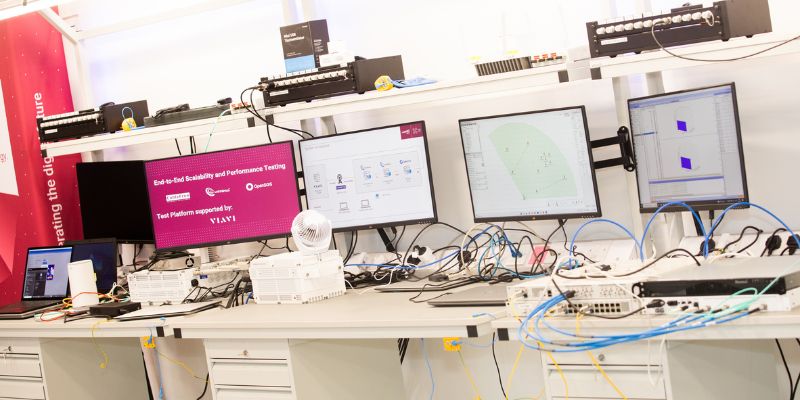York part of new SONIC Labs Technology Access Programme
Posted on Tuesday 6 August 2024

With telecommunications networks accounting for 90% of operators’ energy use, and the Radio Access Network (RAN) representing 80% of this consumption, five teams will develop, build and implement new solutions to make the global Open RAN market more sustainable.
Delivered by Digital Catapult and supported by Ofcom, with funding from the Department for Science, Innovation and Technology (DSIT), SONIC Labs is an innovation programme and R&D facility established to explore the practical viability and performance of Open RAN solutions. Open RAN enables ongoing enhancements in energy management, and by breaking down network components, SONIC Labs’ inaugural technology access programme will consider how energy usage in Open RAN operations can be optimised; championing industrial sustainability through deep tech innovation.
The new access programme launches as Open RAN is now projected to account for 20-30% of worldwide RAN revenues by 2028, and as Europe’s Open RAN revenue share is set to nearly double by 2028. Developing and deploying energy efficient Open RAN solutions will be key to supporting the global mobile telecoms sector to achieve its environmental objectives, cutting its carbon footprint whilst meeting growing demand from customers and commercial partners.
With access to state-of-the-art indoor and outdoor testing sites, the five teams will receive technological guidance and opportunities for collaboration with the broader Digital Catapult network. Running for eight months, the participating companies will also have the opportunity to expand their value propositions, providing a pipeline of innovative and competitive suppliers and products in the Open RAN market. The impact of the programme and the participant’s pioneering solutions will be demonstrated at a showcase event planned for early 2025 to government and industry.
The University of York School of Physics, Engineering and Technology, Net AI, and zTouch Networks will explore how applied artificial intelligence (AI) and machine learning solutions can enhance the performance and resource usage of the radio network used in Open RAN. This will be achieved by optimising a component of the Open RAN architecture called the RAN Intelligent Controller (RIC), which manages radio resources through real-time analytics and control. Optimisation using RIC will improve network efficiency, reduce energy consumption and enhance the performance of Open RAN networks.
"Our research is building on the work of colleagues at the University of York who have developed energy efficient solutions for Open RAN," said Dr Yi Chu, Research Associate in the School. "We are using AI to control and optimise how the network operates using performance measurements collected by the network. We'll be rolling out and testing this approach on a trial network in Blackpool. Ultimately this will enable customers to benefit from more open and energy efficient mobile networks."
To operate effectively, Open RAN splits the components of a wireless communication network, called the Radio Unit (RU), Distributed Unit (DU), and Centralised Unit (CU), allowing for more cost-effective disaggregation of network resources. As part of the programme, G REIGNS and JET Connectivity will benchmark and optimise the energy consumption of the CPU server cores used by the DU and CU, to provide energy efficient solutions for the mobile network operator (MNO) and private network provider community. This will lead to enhanced scalability, improved service delivery and reduced operational expenses for global MNOs and private network providers.
Chris Bryant, Telecoms Minister, said: "Not only will this slash energy use across digital networks such as 5G, but it will also save money for network operators and provide a more competitive service to consumers. We’re proud to support researchers who strive to make the UK’s tech sector more efficient and sustainable, and this is exactly the type of programme that pushes forward innovation in the telecoms sector – so the benefits of growth are felt amongst British consumers."
